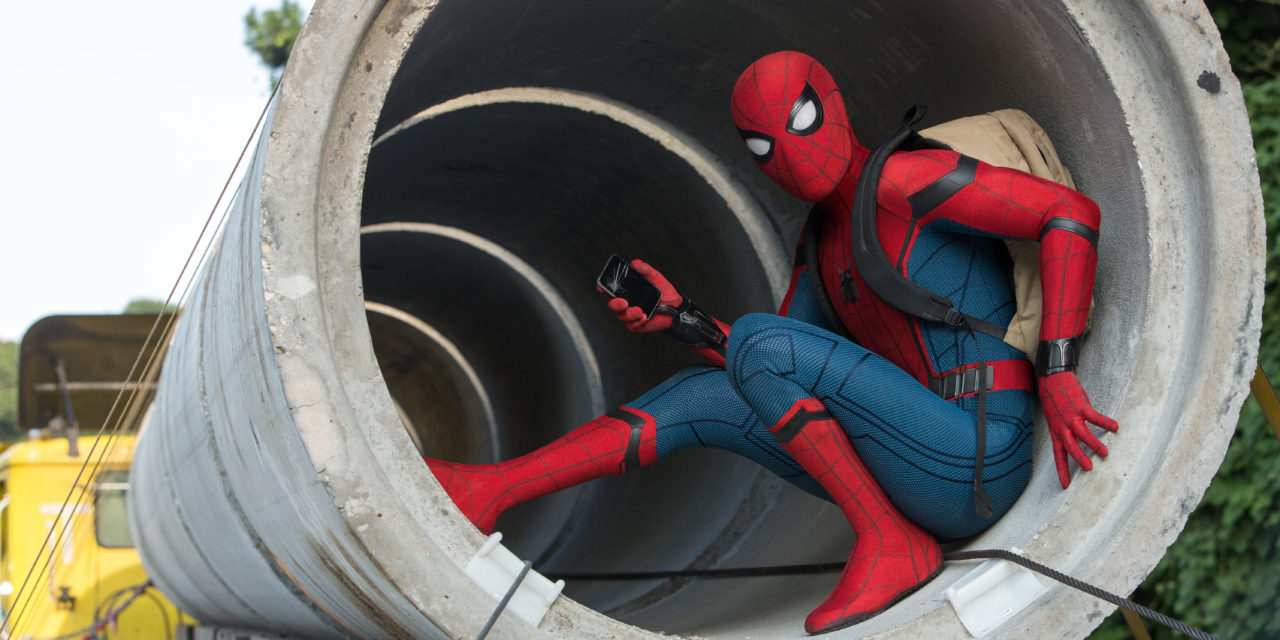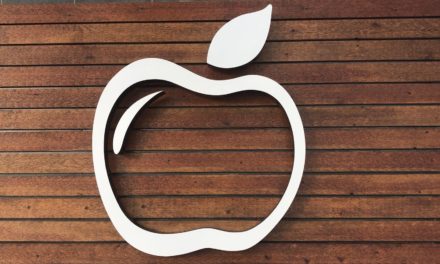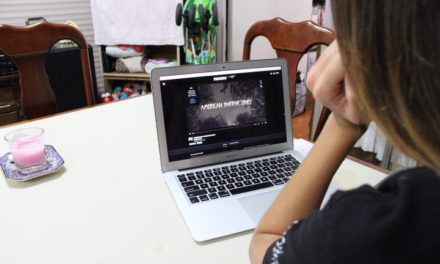By Gavin Arucan | Staff Writer
Marvel’s “Spider-Man: Homecoming” swings into theaters with Tom Holland reprising his role as web-slinging hero from “Captain America: Civil War.” This incarnation of Spider-Man is younger, less experienced, and brighter than ever before as he finally has the chance to live among the interconnected world of the Marvel Cinematic Universe (MCU).
“Homecoming” skips the overdone Spider-Man origin story and picks up a couple of months after the events of “Civil War,” with high school sophomore, Peter Parker stopping petty crimes within New York City. Peter desperately wants to get back into action with the Avengers, but by staying close to the ground and not dealing with alien invasions or the like, he is able to learn the importance of being “the little guy.” There’s no world-ending crisis or portals in the sky, just a kid trying to clean up the streets and help out among the community, and that’s where “Homecoming” shines. Sure, there’s smaller stakes, but that just leaves room for characters to really grow.
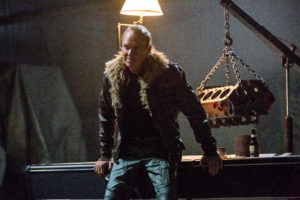
Michael Keaton’s Adrian Toomes/Vulture is Marvel’s most relatable villain. (Photo by Chuck Zlotnick)
Holland’s portrayal of both Peter and Spider-Man has become my new favorite version of the cinematic Spider-Men. This Spidey clearly has potential, but he’s a little cocky and not yet strong enough to take on most super villains, which is why the choice of super villains in “Homecoming” creates the perfect conflict that gives Peter his first step towards becoming a real hero.
The writers selected a few foes from Spider-Man’s lengthy rogues gallery that were both too insignificant for the Avengers to care about, but just formidable enough to have Spider-Man beat most of the time. Peter can’t even subdue someone as standard as the Shocker on his own, so imagine Peter’s dismay when Michael Keaton’s Vulture swoops in with a powerful and intimidating flight suit.
While Vulture proved to be a devastating addition to Peter’s life, I don’t think I can praise Keaton’s Vulture enough. Marvel has always had some of the most bland and uninspired villains put to film, dating all the way back to “Iron Man” in 2008. There are only a handful of MCU villains that work well: Loki, the Kingpin, and Kilgrave. Two of those villains aren’t even in the movies. This is sad, especially since the comics are full of such rich casts of villains. Out of all of Marvel’s movie villains, I never would have thought that Vulture would be the best.
The reason Vulture works so well as a villain is that he is given a full character arc from the first shot of “Homecoming” to the end credits. Good job, Marvel, you finally figured out that villains can be two-dimensional too. A good total third of the film is dedicated to exploring Vulture’s motivation, life, aspirations, and personal troubles, all of which are boosted by a superb performance from Keaton. Much like how most teens would relate to Peter Parker, many blue collar working adults might relate to Vulture’s backstory. As opposite as they may seem, Spider-Man and Vulture are kind of two sides of the same coin. Both characters grow from their encounters with each other.
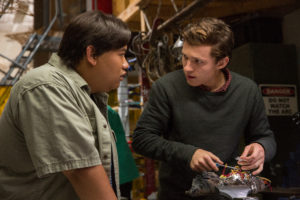
Peter Parker’s best friend, Ned, helps out on both the Peter Parker and Spider-Man sides of his life. (Photo by Chuck Zlotnick)
Of course, there are two sides to Spider-Man: the web-slinging neighborhood hero and the awkward geek, Peter Parker. Peter is such a standout character in pop culture because of how relatable he is. He goes through the same problems that any other kid in high school goes through, he just also has to balance it with being a superhero after school.
“Homecoming” itself mirrors Peter Parker. The film is actually a high school movie masked as a superhero flick. The film goes through all the best high school movie tropes, such as getting a date to homecoming, being sent to detention, and just hanging out with friends.
Peter’s two friends, Ned (Jacob Batalon) and Michelle (Zendaya), are just some of the most fun side characters in the entire MCU. Michelle’s sarcasm and dry wit leaves you wanting more of the character, and Ned’s friendship level with Peter is just so pure and sweet.
Most of the characters in “Homecoming” are great, but Ned, despite being a mere high school student and Lego Star Wars fanatic, has to be my favorite in the film. He basically plays Spider-Man’s sidekick, and his enthusiasm for the role is contagious. I also should mention that his actor, Jacob Batalon, comes from Oʻahu. He’s a 19-year-old Damien alumnus who is now suddenly internationally famous.
Another thing I should talk about is the music of “Homecoming,” since I’ve previously mentioned my love for Michael Giacchino’s composing work. First of all, I give an immediate thumbs up for using the original television theme over the Marvel Studios logo.
At this point in his career, Giacchino’s composing style is obvious. He writes a single theme that encapsulates the feel of the film and uses it throughout the film in different ways that play towards emotion, action, and tone. This is most notable in “The Incredibles,” “Up,” “Inside Out,” and now “Spider-Man: Homecoming.” I’ve listened to the “Homecoming” soundtrack in its entirety outside of the movie, and I can make out Giacchino’s new Spider-Man theme in most, if not all, of his compositions. He even utilizes Alan Silvestri’s theme from “The Avengers” once, though I am disappointed that the “Iron Man 3” theme didn’t make an appearance at a certain point in the film.
Giacchino’s scores gives off an innocent “wall-crawling” vibe that fits Spider-Man. Though, as much as I do like this score, there’s one major downfall: this movie came out after Sam Raimi’s “Spider-Man.” Danny Elfman’s score for the 2002 movie is still the clear superior amongst most superhero themes, including Giacchino’s. Marvel is slowly improving its musical scores, which I am glad to hear. I’ve enjoyed all of the music since Doctor Strange, so hopefully this trend continues.
While the music improved, the visuals took a sharp downward turn from “Guardians of the Galaxy Vol. 2.” The color scheme reverts back to Marvel’s usual dull tone that it has had since the switch to digital cameras after “Thor.” It might take a while for Marvel to act on the praise that “Guardians Vol. 2” received for its vibrant and colorful visuals since Marvel movies are made at such a rapid pace. The trailers for “Thor: Ragnarok” and “Black Panther” still use the same gray color palette, so I’m hoping for “Avengers: Infinity War” to finally fix this problem for good.
Those criticisms I have for “Homecoming” are admittedly pretty minor. It basically comes down to some technical aspect not being as great as some other movie. There’s no full character, scene, or part of the script that I can point at and say, “this is bad.” With that said, however, there is no one part of “Spider-Man: Homecoming” that I can point at and exclaim, “this is amazing!”
“Homecoming” is simply good all the way through. There’s nothing bad, but there’s nothing that really excites me either. Let’s compare it to two other summer superhero movies that came out this year. With “Guardians Vol. 2,” I can say that my favorite scenes were the opening dance sequence and the prison break scene. With “Wonder Woman,” I will always praise how inspirational the scene in the trenches is. With “Homecoming,” I like the characters, I enjoy the story, but I can’t single out a favorite part that’ll keep bringing me back to the theater.
I suppose that the film’s greatest flaw is that it barely pushes the boundaries of a superhero film. It plays it safe, which is probably necessary for Spidey’s first standalone outing in the MCU. However, being safe means that it isn’t going to be memorable. Going into 2017, “Spider-Man: Homecoming” was the Marvel film I was least looking forward too. Of course, the over-marketing didn’t help, but it seemed like the most standard film next to the insanity that “Guardians Vol. 2” and “Thor: Ragnarok” looked to be.
“Spider-Man: Homecoming” is thoroughly enjoyable and I recommend it highly for at least one viewing, but I have a feeling that, at the end of 2017, it’ll be my least favorite of the three Marvel films this year. That doesn’t mean it’s bad by any means, it’s just not as spectacular as it could be or as other superhero movies have been.

